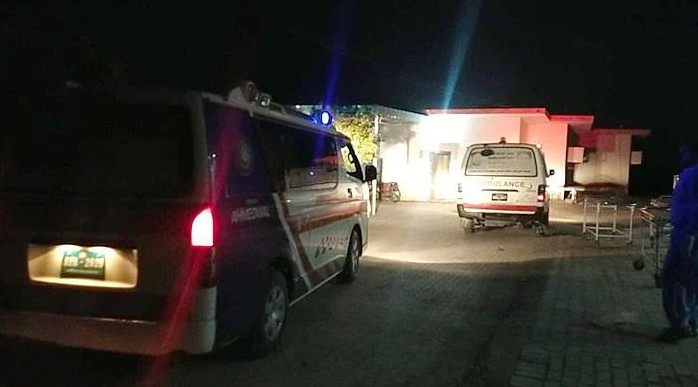The Musakhel attack in Balochistan has left 23 passengers dead after they were brutally ambushed in the Rarasham area, police reported on Monday. Armed men targeted passenger buses and trucks, blocking the inter-provincial highway to carry out the Musakhel attack. The assailants forced passengers off the vehicles before executing them.
Senior Superintendent of Police (SSP) Ayub Achakzai confirmed the details, stating that police and Levies forces responded quickly to the Musakhel attack. The bodies were transported to the hospital as authorities began their investigation.
Speaking on media; Balochistan government spokesperson Shahid Rind revealed that militants launched attacks on multiple fronts. They faced resistance from security forces, but the terrorists exploited the darkness to carry out the Musakhel attack. The attackers identified the passengers before executing them.
Balochistan Chief Minister Sarfraz Bugti has called an urgent meeting to address the aftermath of the Musakhel attack. “Important decisions” are expected as the provincial government seeks to tackle the ongoing law and order crisis. Rind emphasized the need for a comprehensive approach involving both the political leadership and security forces to prevent further incidents like the Musakhel attack.
This tragic Musakhel attack highlights the persistent security challenges in Balochistan. Pakistan has seen a rise in terrorism-related incidents, especially in provinces bordering Afghanistan, like Balochistan and Khyber Pakhtunkhwa. The Centre for Research and Security Studies (CRSS) reported 380 fatalities and 220 injuries from violence during the second quarter of this year. These incidents, including the Musakhel attack, stem from terror attacks and counter-terrorism operations.
In response to the escalating violence, the federal cabinet approved Operation Azm-e-Istehkam in June. This national counter-terrorism campaign aims to eliminate terrorism across the country, following recommendations from the Central Apex Committee under the National Action Plan.
President Asif Ali Zardari condemned the Musakhel attack, expressing grief over the loss of lives. He labeled the terrorists as “enemies of the nation” and demanded justice for the victims. Prime Minister Shehbaz Sharif also expressed anger and sorrow over the Musakhel attack, directing local authorities to support the victims’ families and ensure immediate medical assistance for the injured. He vowed that those responsible for the Musakhel attack would face retribution, declaring that the fight against terrorism would continue until the threat is eradicated.
Balochistan Chief Minister Bugti issued a strong condemnation, pledging that the government would pursue the terrorists and their facilitators involved in the Musakhel attack.


